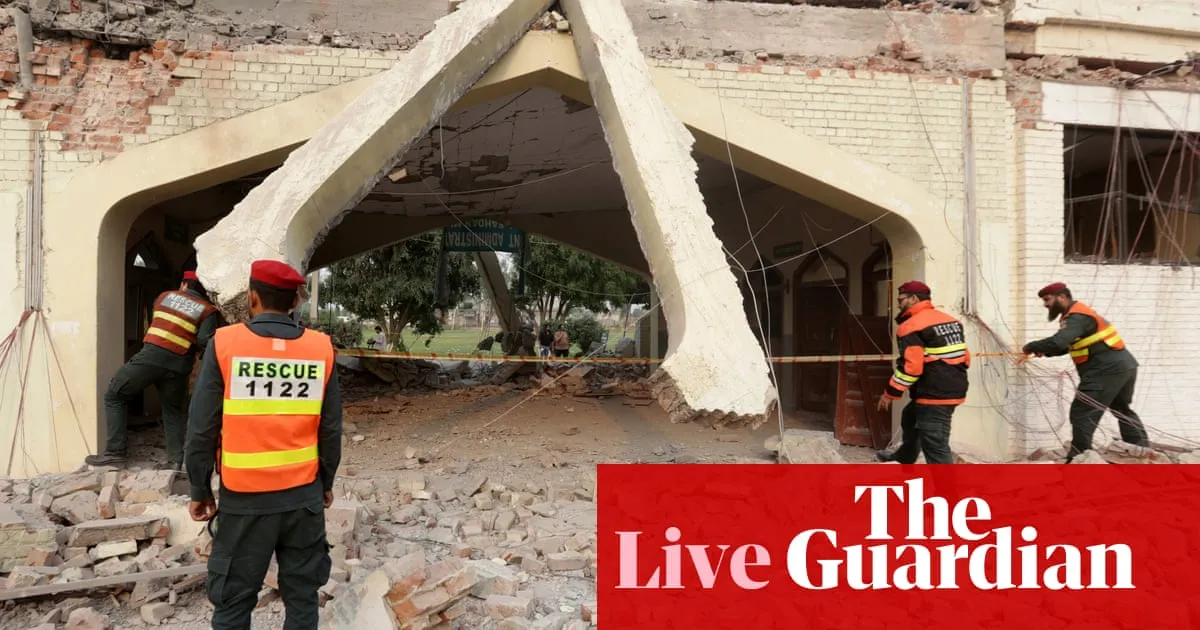
In a devastating escalation of conflict, at least 26 people, including several children, were killed, and 46 others injured following missile strikes launched by India in Pakistan and Pakistan-administered Kashmir. The strikes, which occurred in the early hours, specifically targeted various locations, including a mosque in the city of Bahawalpur, situated in Punjab, Pakistan’s most populous province. This particular strike resulted in the tragic deaths of 13 individuals, among them two innocent three-year-old girls.
Additional areas affected included Muridke in Punjab and Kotli in Pakistan-controlled Kashmir. In Kotli, a missile strike on another mosque led to multiple casualties, including a 16-year-old girl. The Indian government justified these military actions by asserting that the strikes were aimed at nine sites of terrorist infrastructure within Pakistan. The Indian defence ministry indicated that these operations were a response to a recent attack on Hindu tourists in Indian-administered Kashmir, which left 26 people dead.
The operation was named “Operation Sindoor”, symbolizing a tribute to the wives of the victims of the militant attack that occurred in the Baisaran Valley in Pahalgam back in April. An Indian army spokesperson stated that intelligence reports indicated the possibility of further attacks against India, necessitating this pre-emptive action to deter future threats.
In stark contrast, Pakistan condemned the missile strikes as an “act of war”, claiming to have intercepted five Indian air force jets in retaliation. The Pakistani government, led by Prime Minister Shehbaz Sharif, authorized its armed forces to undertake “corresponding actions” in response to the attacks. Defence Minister Khawaja Muhammad Asif expressed that while Pakistan is striving to avoid an “all-out war”, the missile strikes were a blatant violation of sovereignty and an invitation to escalate the conflict. He emphasized that the military was prepared for a potential full-scale war.
Pakistan vehemently denied that any of the locations hit by Indian missiles were linked to terrorist activities. The national security committee, chaired by Sharif, accused India of deliberately targeting civilian infrastructure, including mosques, under the false pretense of attacking terrorist camps. The statement described the attacks as “unprovoked and unjustified”, resulting in the deaths of innocent men, women, and children.
As tensions escalated, heavy exchanges of fire occurred along the line of control throughout the night. Reports from Pakistan indicated that an additional five people, including a five-year-old child, were killed due to artillery fire near the de facto border. Meanwhile, Indian authorities reported that at least seven civilians died, with 30 others wounded, as a result of retaliatory fire from Pakistani forces.
In light of the escalating situation, Indian Prime Minister Narendra Modi canceled his scheduled visit to Europe, which included stops in Croatia, Norway, and the Netherlands. Modi convened a meeting with senior cabinet ministers, although he has not made a public statement since the strikes.
International leaders, including UN Secretary-General António Guterres, have called for restraint. China urged both nations to prioritize peace and stability, emphasizing the need for calm and restraint to prevent further complications. Russia expressed concern over the developments, while Turkey appealed for common sense. The UK has offered to assist both countries in de-escalating the situation, and US President Donald Trump described the fighting as “a shame,” expressing hope for a swift resolution.